Author: Alex Shanks-Abel
Initially bred in 2000 and commercially released in 2009, the Australian hop known as Galaxy experienced a very rapid rise in popularity thanks to the pungent fruity notes it imparts to beer. With descriptors including passionfruit, citrus, and peach, Galaxy is a natural fit in modern IPA, though it has also found use in more subtle styles over the years.
Alpha: 12 – 16%
Beta: 5 – 7%
Cohumulone: 32 – 42% of alpha acids
Oil: 3 – 5 ml/100g
Myrcene: 33 – 69%
Humulene: 1 – 2%
Caryophyllene: 7 – 9%
Farnesene: 2 – 4%
Linalool: 0.2 – 0.6%
Geraniol: 0 – 0%
ß-Pinene: 0.6 – 0.9%
Parentage: male Perle crossed with female tetraploid (J78)
Having brewed many batches of Pale Ale and IPA with Galaxy, typically in combination with other varieties, I was excited to see how it would work when used in a more delicately hopped pale lager.
| MAKING THE BEER |
I went with our standard Hop Chronicles Pale Lager recipe for this batch, making adjustments to the kettle hop additions to keep the bitterness in check.
Galaxy Pale Lager
Recipe Details
| Batch Size | Boil Time | IBU | SRM | Est. OG | Est. FG | ABV |
|---|---|---|---|---|---|---|
| 5.5 gal | 60 min | 21.6 | 3.2 SRM | 1.047 | 1.009 | 4.99 % |
| Actuals | 1.047 | 1.009 | 4.99 % | |||
Fermentables
| Name | Amount | % |
|---|---|---|
| Pilsner Malt | 10 lbs | 100 |
Hops
| Name | Amount | Time | Use | Form | Alpha % |
|---|---|---|---|---|---|
| Galaxy | 1 g | 60 min | Boil | Pellet | 15.7 |
| Galaxy | 10 g | 30 min | Boil | Pellet | 15.7 |
| Galaxy | 10 g | 5 min | Boil | Pellet | 15.7 |
Yeast
| Name | Lab | Attenuation | Temperature |
|---|---|---|---|
| Global (L13) | Imperial Yeast | 77% | 32°F - 32°F |
Notes
| Water Profile: Ca 53 | Mg 0 | Na 0 | SO4 58 | Cl 50 |
Download
| Download this recipe's BeerXML file |
After collecting the full volume of water and adjusting it to my desired profile, I weighed out and milled the grain.
When the water was properly heated, I incorporated the grains then checked to ensure the mash was at my desired temperature.
During the mash rest, I prepared the kettle hop additions.
Once the 60 minute mash was complete, I removed the grains, boiled the wort for 60 minutes, and chilled it before taking a refractometer reading showing it was at my target OG.
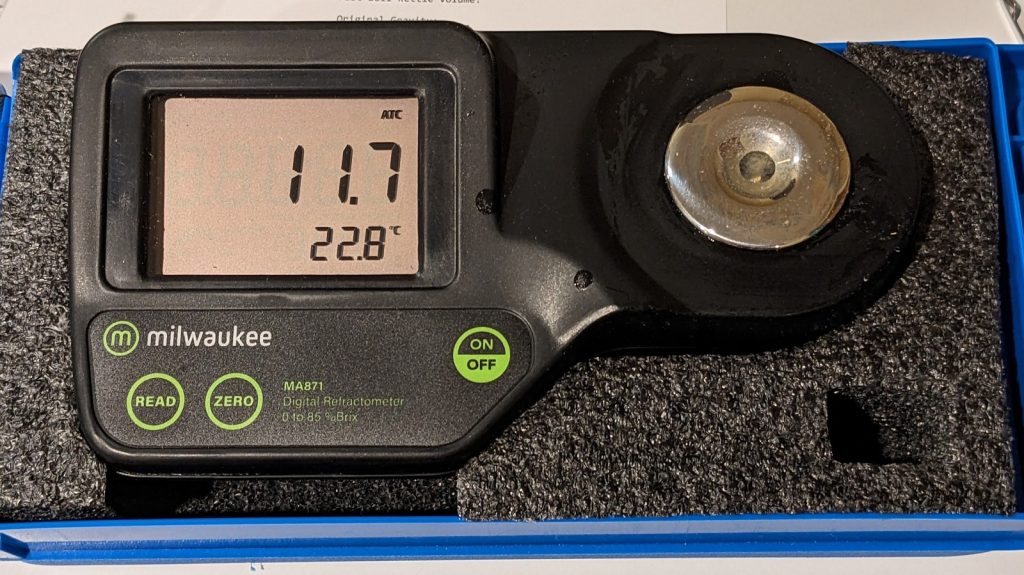
After transferring the wort to a sanitized fermenter, I pitched a single pouch of Imperial Yeast L13 Global.
The beer was left to ferment at 64°F/17°C for a week before I took a hydrometer measurement confirming FG was reached.
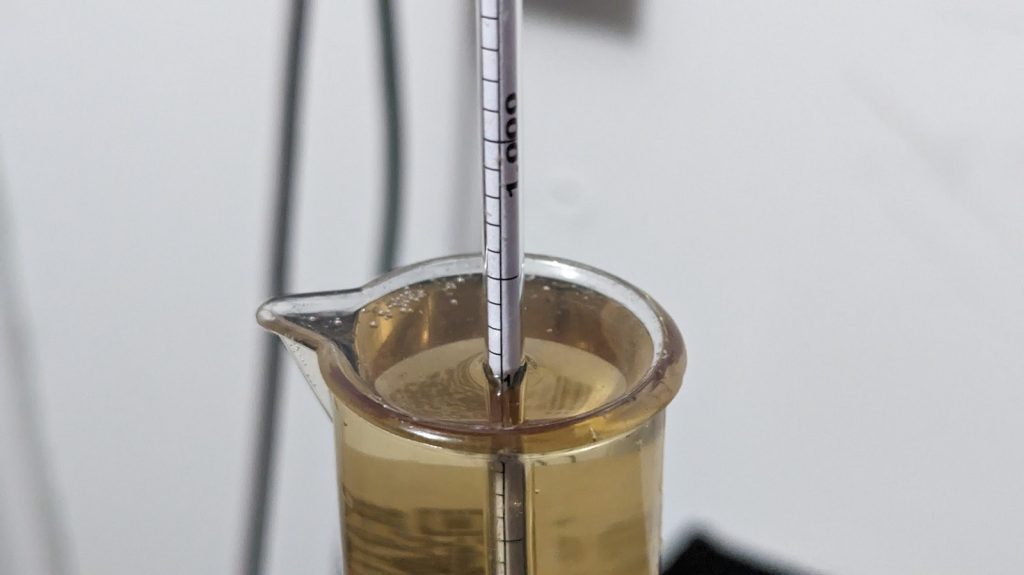
With fermentation complete, I cold crashed the beer then pressure-transferred it to a CO2 purged keg, which was placed in my kegerator and burst carbonated overnight before the gas was reduced to serving pressure. After a couple weeks of conditioning, it was ready to serve to blind tasters.
| METHOD |
Participants were instructed to focus only on the aromatic qualities of the beer before evaluating the flavor. For each aroma and flavor descriptor, tasters were asked to write-in the perceived strength of that particular characteristic on a 0-9 scale where a rating of 0 meant they did not perceive the character at all and a 9 rating meant the character was extremely strong. Once the data was collected, the average rating of each aroma and flavor descriptor was compiled and analyzed.
| RESULTS |
A total of 20 people participated in the evaluation of this beer, all blind to the hop variety used until after they completed the survey. The average aroma and flavor ratings for each descriptor were plotted on a radar graph.
Average Ratings of Aroma and Flavor Perceptions
The 3 characteristics endorsed as being most prominent by participants:
| Aroma | Flavor |
| Tropical Fruit | Citrus |
| Citrus | Tropical Fruit |
| Floral | Stone Fruit |
The 3 characteristics endorsed as being least prominent by participants:
| Aroma | Flavor |
| Onion/Garlic | Berry |
| Berry | Onion/Garlic + Dank/Catty (tie) |
| Dank/Catty | Pine |
Next, participants were asked to rate the pungency/strength of the hop.
Tasters were then instructed to identify beer styles they thought the hop would work well in.
Finally, participants were asked to rate how much they enjoyed the hop character on a 0 to 10 scale.
My Impressions: I perceived this beer as having rather pungent notes of papaya, pineapple, and orange, which was surprising considering the relatively small amount of hops I used. As a fan of these characteristics, I found the beer to be quite enjoyable, and a definitely departure from a standard pale lager.
| CONCLUSION |
Not long after hitting the scene, Galaxy hops made a huge splash due to the intense fruity characteristics in imparts to beer. So popular was this newfound variety that it became quite difficult for brewers to get a hold of, which only seemed to increase the demand. Nowadays, Galaxy is much easier to access, and while it’s still widely viewed as an IPA hop, some brewers have found it works well used in less assertive beer styles.
The most prominent aroma and flavor characteristics noted by people who evaluated a pale lager made solely with Galaxy were tropical fruit and citrus with floral and stone fruit close behind. Moreover, less desirable notes of onion/garlic and dank/catty were among the least endorsed descriptors. Perhaps unsurprisingly, the beer style most tasters felt Galaxy would work well in is APA/IPA, which given this was a pale lager, likely speaks to its overall fruity character. Indeed, a majority of tasters felt this lowly hopped beer had a moderate to strong hop pungency. Tasters also felt the hop would work well in less assertive styles like Blonde Ale and pale lager.
I’ve always been a fan of Galaxy when used in hoppier styles, and after this experience, I can confidently say I also enjoy how it works in a delicate pale lager. While not overpowering, the papaya, pineapple, and orange notes were quite prominent, which I felt contributed to the overall refreshing drinkability of this beer. Galaxy will remain a mainstay in my brewery, and I look forward to seeing how it does in even more non-IPA styles.
Galaxy hops are available now at Yakima Valley Hops, get some while you can! If you have any thoughts on this variety, please feel free to share them in the comments section below.
Support Brülosophy In Style!
All designs are available in various colors and sizes on Amazon!
Follow Brülosophy on:
FACEBOOK | TWITTER | INSTAGRAM
If you enjoy this stuff and feel compelled to support Brulosophy.com, please check out the Support page for details on how you can very easily do so. Thanks!



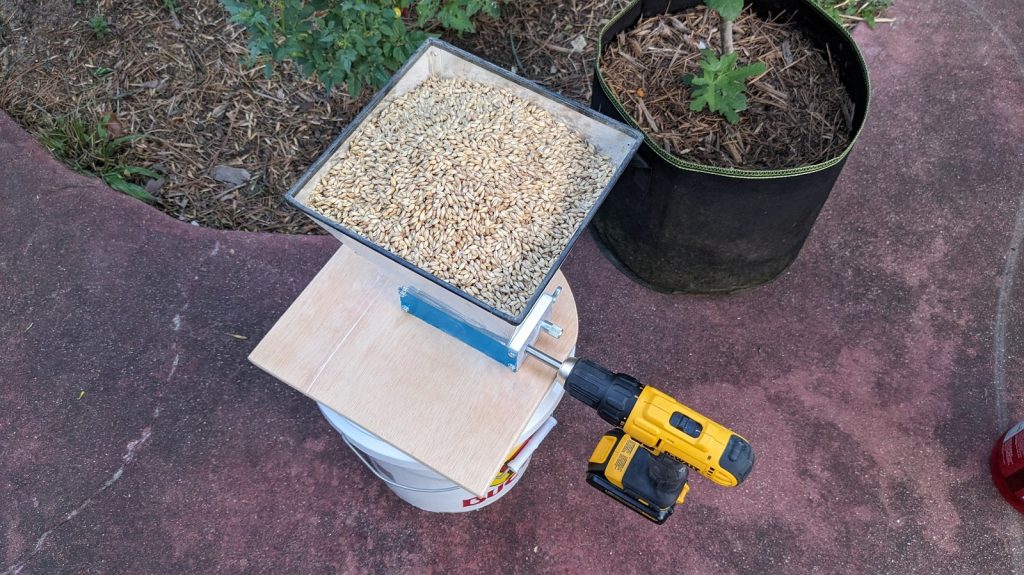
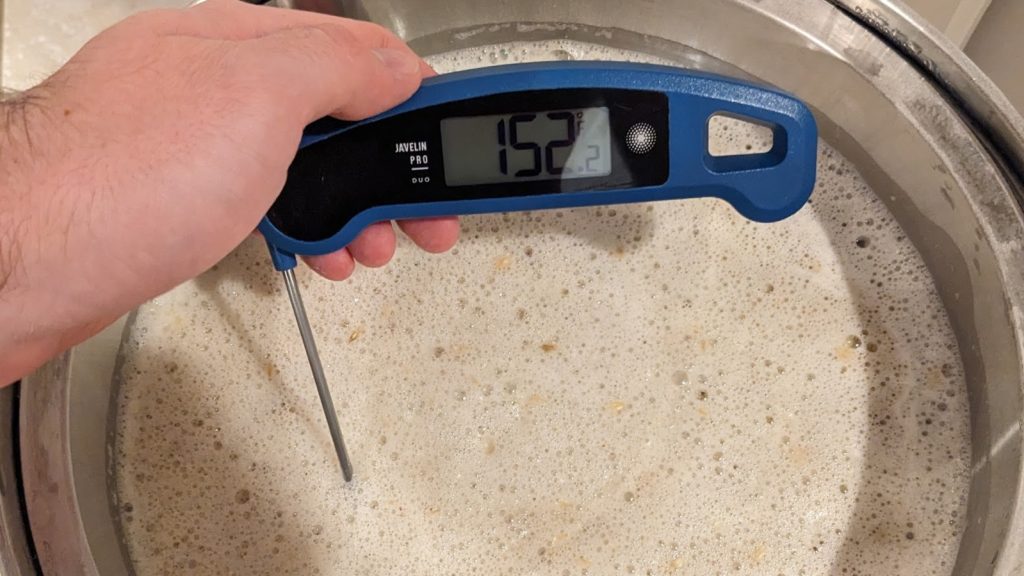
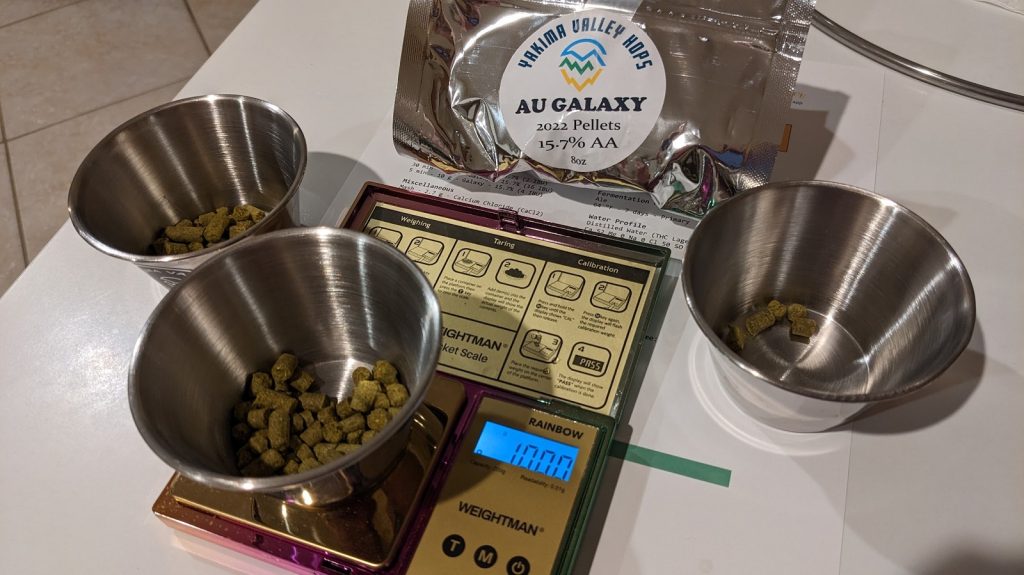
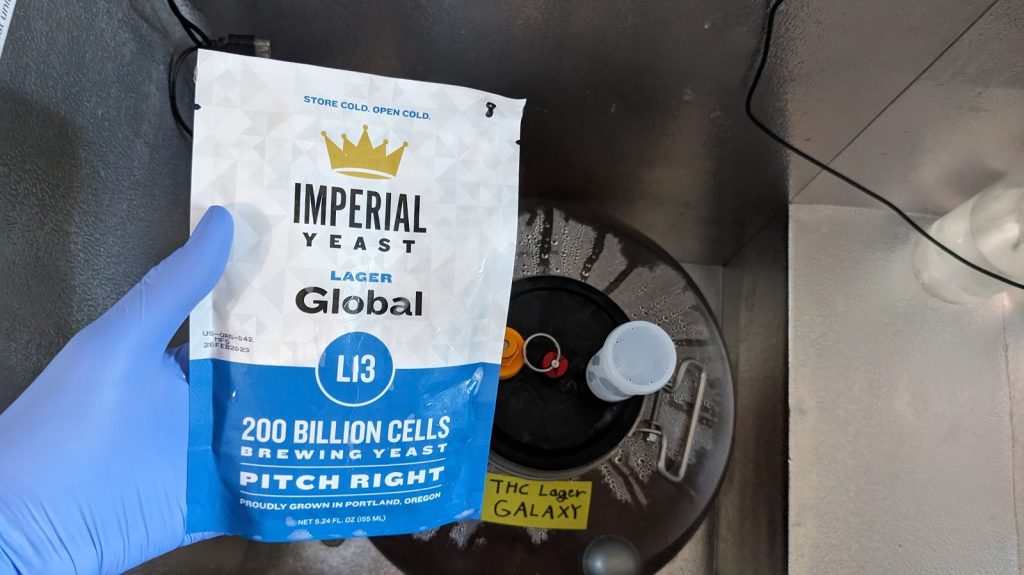
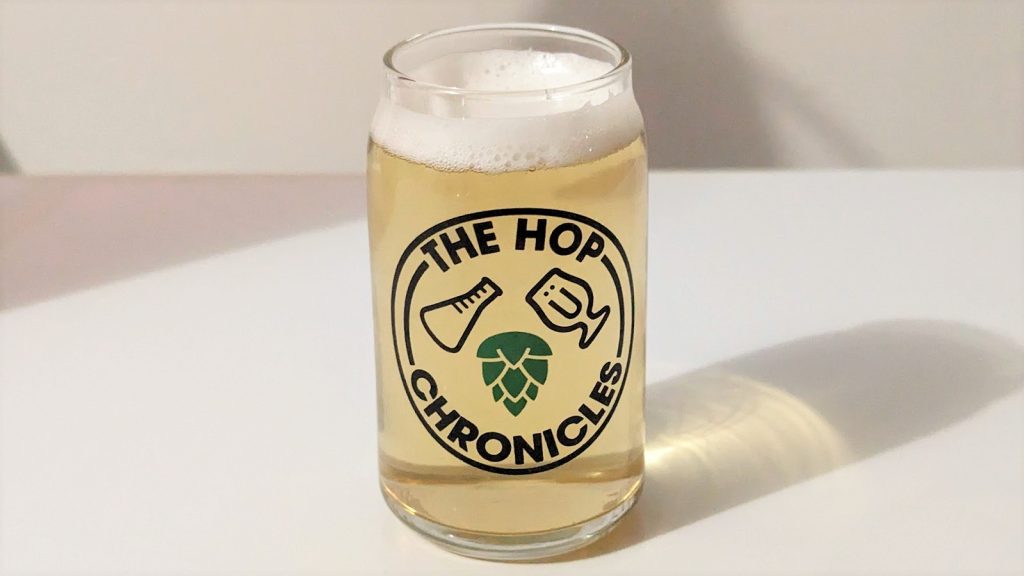

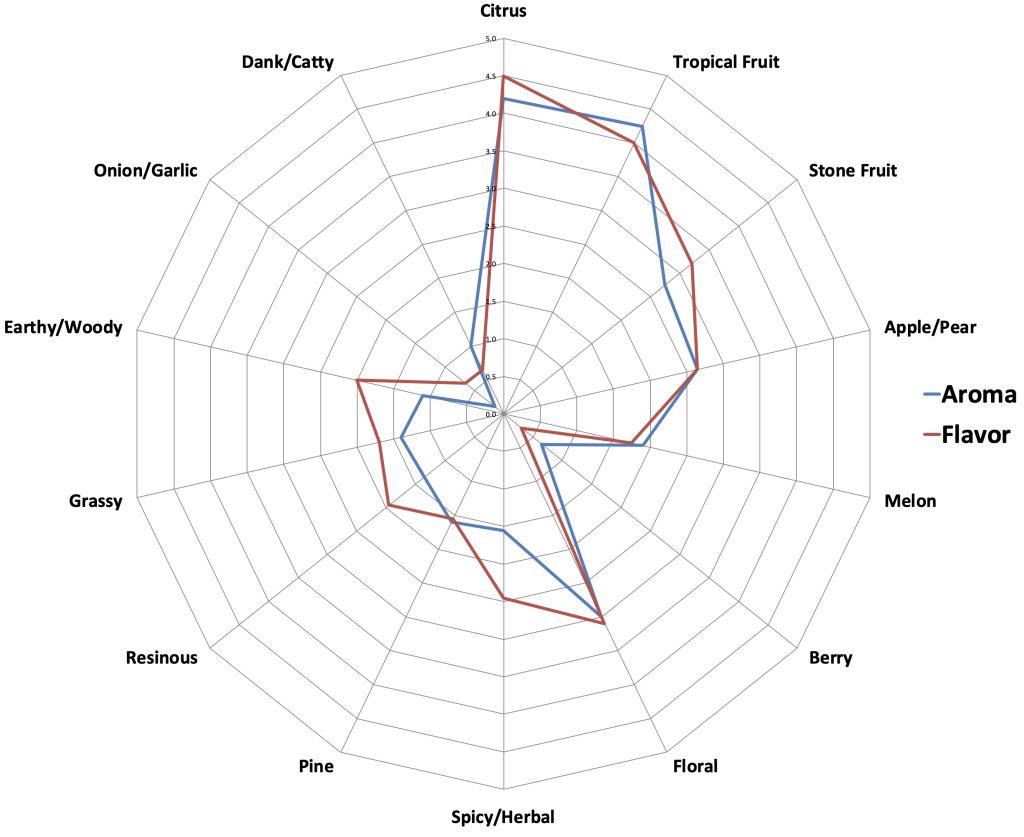
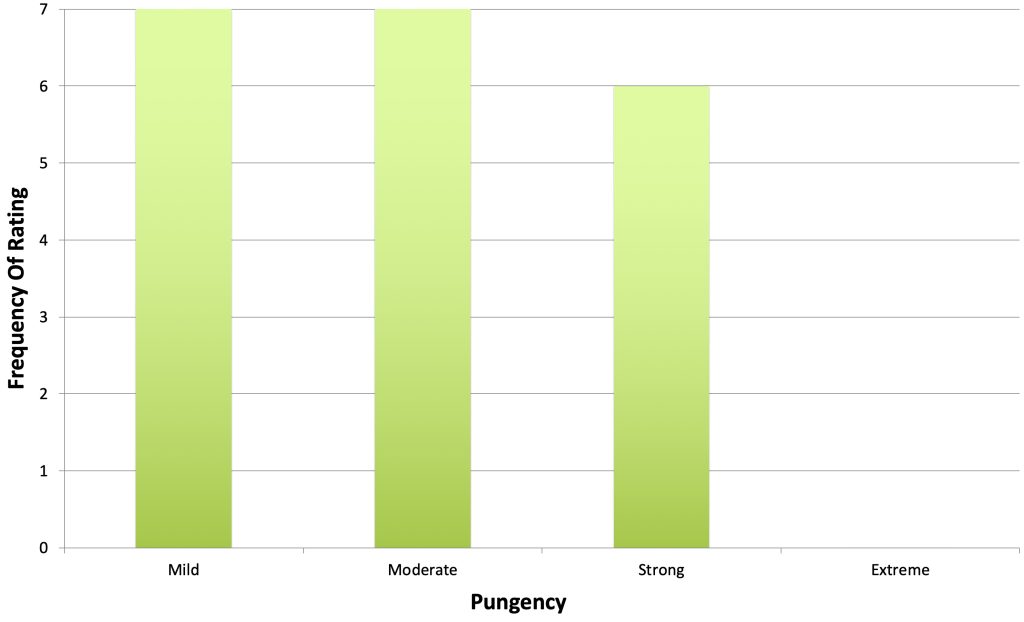
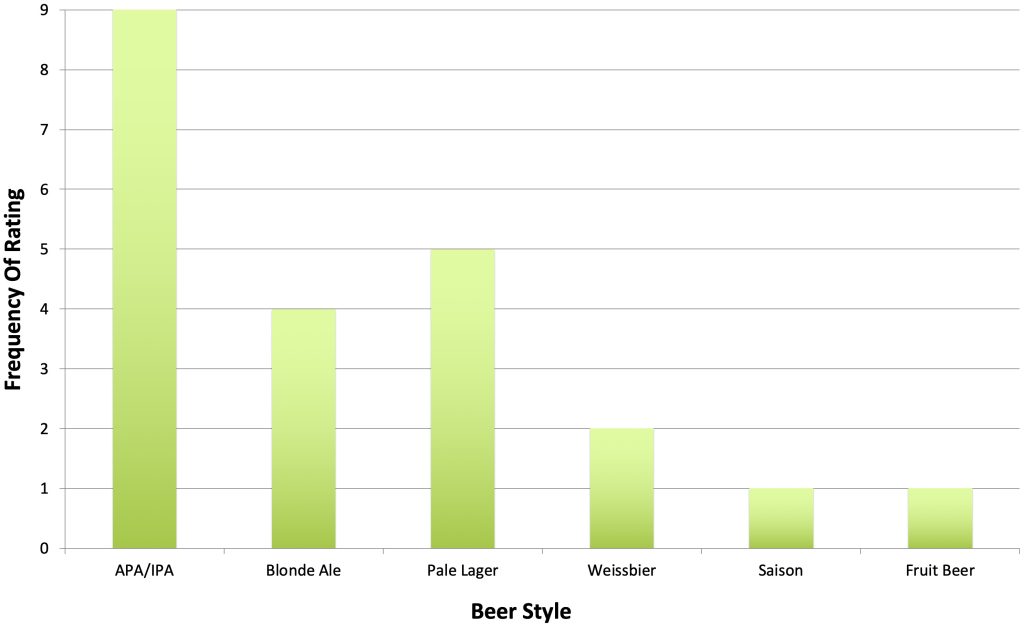
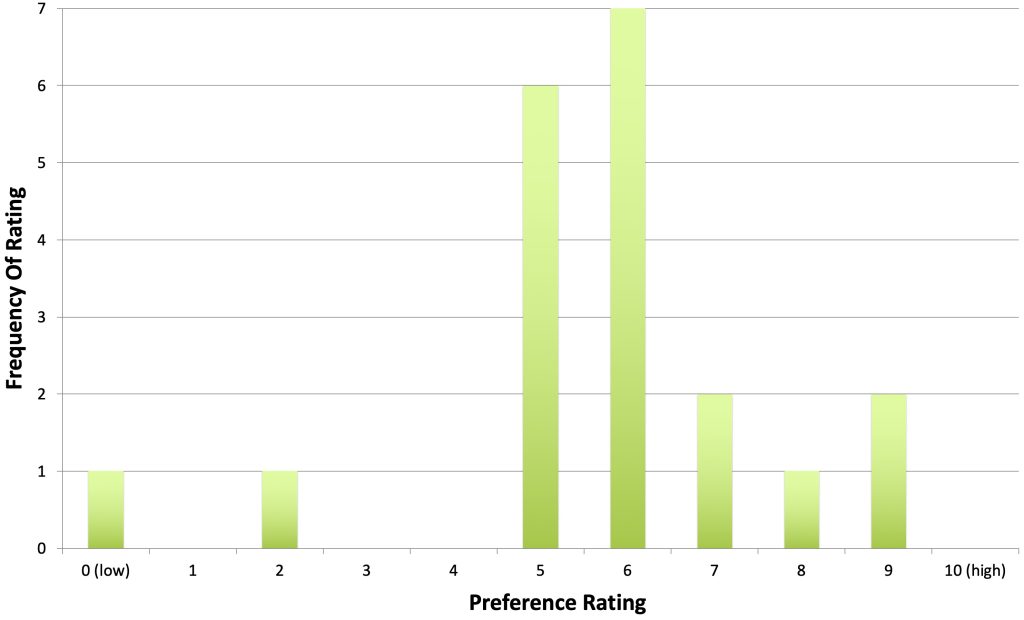








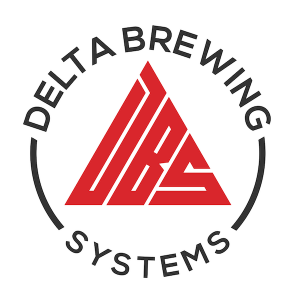


4 thoughts on “The Hop Chronicles | Galaxy (2022) Pale Lager”
Galaxy hops were amazing in their first emergence during the early 00’s, then they went through a “yuck” phase for a few years. Last year, I’m happy to say that I think the hop is back – or at least close – to what I remember ten years ago.
I think you’re right, Steve. I haven’t heard any news about the 2023 crop, but I’m hopeful!
20g Grams of Galaxy for the whole brew ? i dont see how you could taste anything with such a low amount of hops
It’s a testament to the pungency of Galaxy!